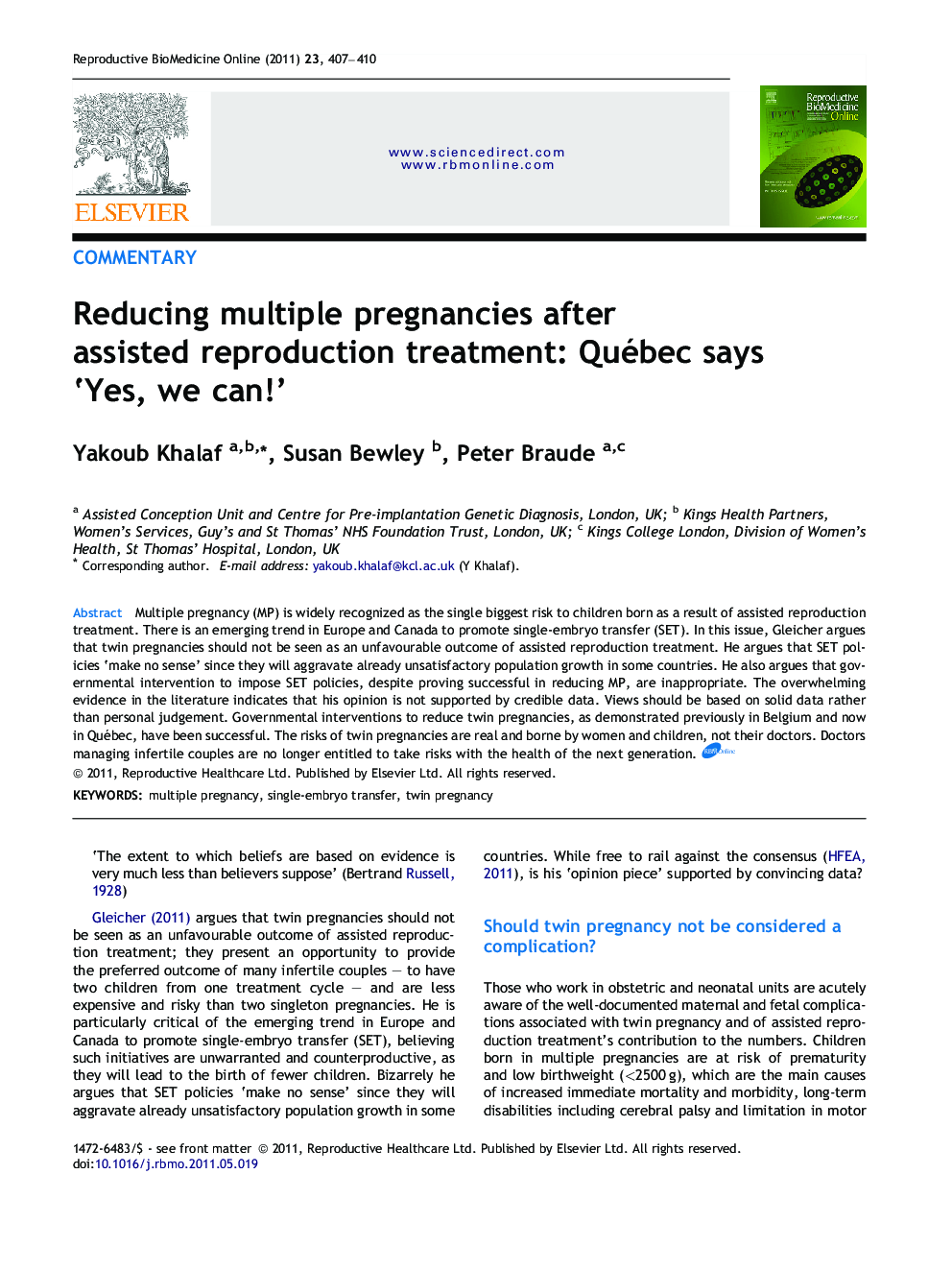| کد مقاله | کد نشریه | سال انتشار | مقاله انگلیسی | نسخه تمام متن |
|---|---|---|---|---|
| 3971122 | 1256749 | 2011 | 4 صفحه PDF | دانلود رایگان |
عنوان انگلیسی مقاله ISI
Reducing multiple pregnancies after assisted reproduction treatment: Québec says 'Yes, we can!'
دانلود مقاله + سفارش ترجمه
دانلود مقاله ISI انگلیسی
رایگان برای ایرانیان
کلمات کلیدی
موضوعات مرتبط
علوم پزشکی و سلامت
پزشکی و دندانپزشکی
زنان، زایمان و بهداشت زنان
پیش نمایش صفحه اول مقاله

چکیده انگلیسی
Multiple pregnancy (MP) is widely recognized as the single biggest risk to children born as a result of assisted reproduction treatment. There is an emerging trend in Europe and Canada to promote single-embryo transfer (SET). In this issue, Gleicher argues that twin pregnancies should not be seen as an unfavourable outcome of assisted reproduction treatment. He argues that SET policies 'make no sense' since they will aggravate already unsatisfactory population growth in some countries. He also argues that governmental intervention to impose SET policies, despite proving successful in reducing MP, are inappropriate. The overwhelming evidence in the literature indicates that his opinion is not supported by credible data. Views should be based on solid data rather than personal judgement. Governmental interventions to reduce twin pregnancies, as demonstrated previously in Belgium and now in Québec, have been successful. The risks of twin pregnancies are real and borne by women and children, not their doctors. Doctors managing infertile couples are no longer entitled to take risks with the health of the next generation.
ناشر
Database: Elsevier - ScienceDirect (ساینس دایرکت)
Journal: Reproductive BioMedicine Online - Volume 23, Issue 4, October 2011, Pages 407-410
Journal: Reproductive BioMedicine Online - Volume 23, Issue 4, October 2011, Pages 407-410
نویسندگان
Yakoub Khalaf, Susan Bewley, Peter Braude,